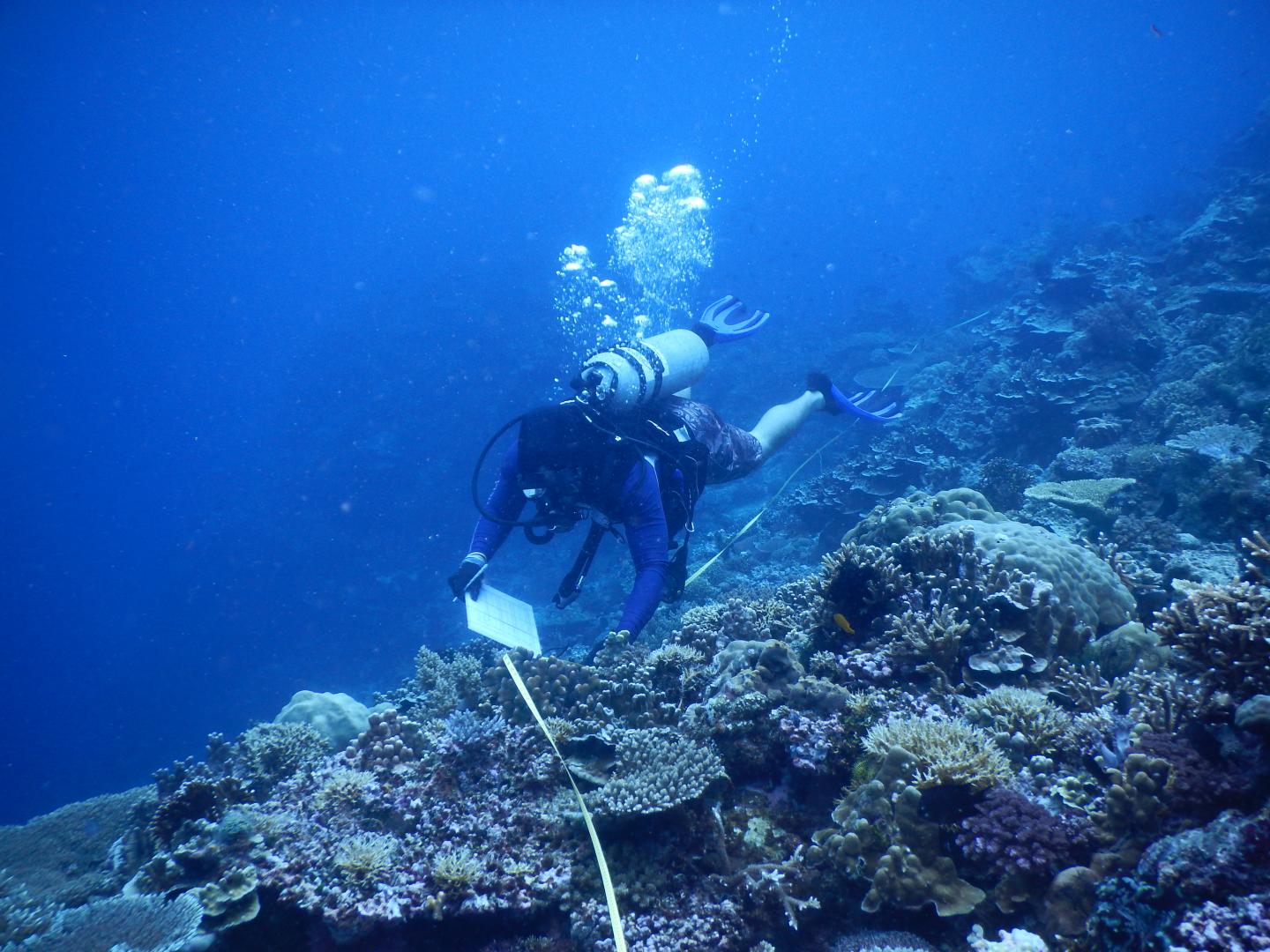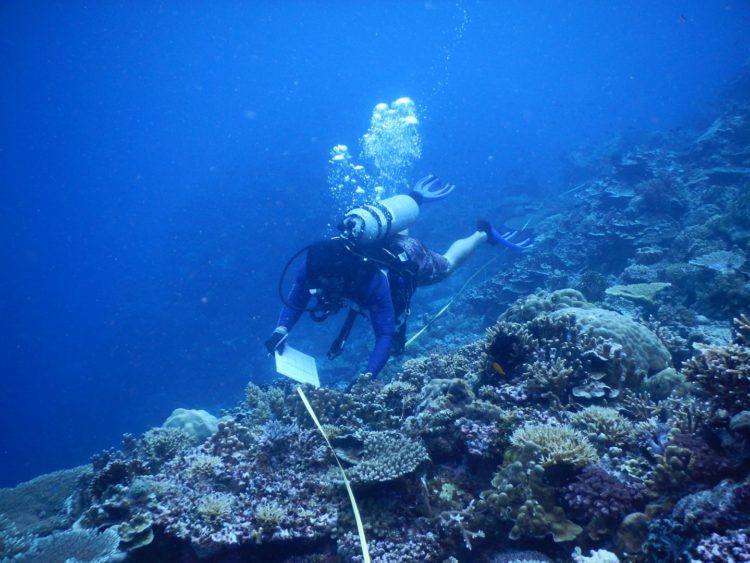Research reveals lessons from the Pacific about balancing community and environmental needs

Credit: Dr Fraser Januchowski-Hartley.
New research has found that positive community action can boost fish numbers in coral reefs and safeguard fish numbers there in the future.
The research collaboration, which included academics from Swansea University’s College of Science, published their findings in the Proceedings of the National Academy of Sciences (PNAS). The paper details the social and ecological outcomes of the work being done in the Muluk and Wadau communities on Karkar Island, Papua New Guinea since 2001.
While coral reefs provide food and income for millions of people, reef health is declining worldwide, but these communities have established a traditional system of rotational fishing closures to manage their fisheries resources.
The communities ban fishing on part of their reefs for a few years, and open these closures when village elders and fishers believe that fishes have changed their behaviour and fish populations have recovered.
They then close a different part of their reef, and repeat the process. The researchers found that these practices resulted in more than twice as much fish on the closed reefs compared to open ones, and closures made fish less scared of people and easier to catch.
The local people saw the closure system as good for their livelihoods and each period of closure was celebrated with a feast which meant that closures were remembered positively by the community.
Lead author, Professor Josh Cinner of James Cook University in Australia said: “The communities use a carrot and stick approach to ensure everyone complies with the closures. If they follow the rules they earn the right to do a special type of night fishing called ‘bom bom’, but if someone breaks these rules, they are publically shamed.”
“These incentives to follow the rules are complemented with strong leadership and decision-making processes that allow the whole community to get involved and have a say.”
However the team did find that while the closures boosted the number of fish in the short term, it may not be enough to stop the overall impact of fishing. However the academics say that because the communities manage their reefs themselves they can shorten the period between closures which could lessen the impact on fish numbers.
Swansea University scientist, Dr Fraser Januchowski-Hartley said: “Our findings also show that while rotational closure system may not work everywhere, there could be some lessons that can be transferred to other places. For example, by adopting a system of property rights, encouraging participation and creating social norms communities can encourage more pro-environmental practices in the future.”
###
Media Contact
Delyth Purchase
[email protected]
Original Source
https:/
Related Journal Article
http://dx.





